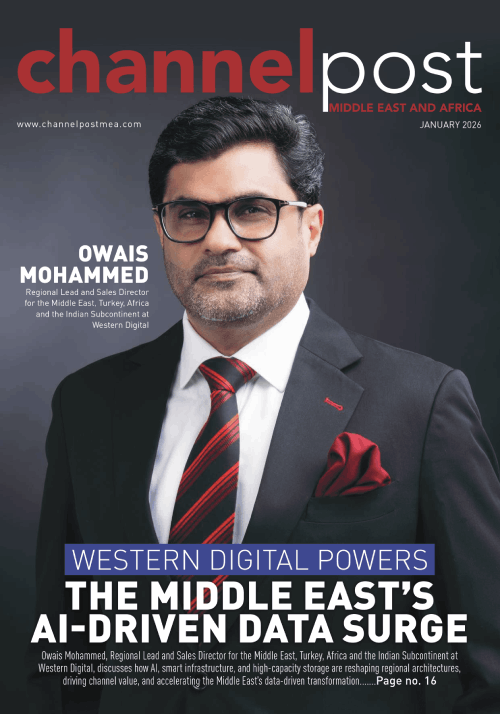Nora Wahby, Vice President and Head of Ericsson West Africa & Morocco explains how technology and innovation are driving economic growth & societal inclusion across the continent of Africa.

All around the world, digital transformation is becoming a critical factor in long-term, sustainable economic development, and Africa is no exception. With two decades of experience behind me, I feel a lot of pride in being part of a digital transformation journey with Ericsson which allows me to share my love of technology and how it can accelerate socio-economic prosperity towards the people of Africa.
We, at Ericsson, believe that ICT has the ability to level the global playing field and enable African countries to harness the full potential of their human capital. Almost two years ago, I landed in Africa for my first business trip to meet the team and customers in Senegal. Not only did the career move appeal to my sense of adventure and exploration, I was excited about the life-changing experiences about to unfold.
I did not know about the culture except few stories from my father who had visited Dakar in the 80s and who talked a lot about the kindness of the people and how much he loved the food, the music and the colors.
As a business leader, my personal purpose ties very well into Ericsson’s vision in accelerating the broadband adoption in Africa. Ericsson’s vision calls for us to connect the unconnected because we believe that access to communication is a basic human need. We believe people in rural parts of Africa will benefit greatly from mobile connectivity, which greatly increases access to information and services that support health, education and small businesses.
In a world where all Africans have access to quality education and health service, this young continent will keep beating with endless opportunities building on a rich heritage, a vibrant culture and a young population dreaming of the future. Driven by a desire to better understand the needs of mobile users in Africa and provide them with specialized services, I committed to the vision of an empowered Africa through technology, innovation and the principles of digital inclusion. In my heart I’m determined to put #AfricaInMotion
A Connected Africa
Operating in a very mature and competitive market that has grown significantly in the last ten years, telecommunication service providers in Africa are playing an increasingly important role in helping both governments and cities deepen their understanding about the concrete steps they can take to increase Africa’s competitiveness in the global economy through supporting and encouraging the increased use of ICT.
Connectivity not only offers great potential to transform cities and industries, but it also fosters inclusion and makes a positive, sustainable economic impact. With the ambition of supporting the acceleration of Africa’s digitization journey, we are working jointly with our customers – the service providers – and other stakeholders across the continent to enable #AfricaInMotion. The campaign highlights the continent’s potential to accelerate digital adoption and leapfrog into a new era of socio-economic prosperity.
One example is financial inclusion through the use of digital technology as an essential element in furthering the economic development of Africa. Mobile money services have become an essential, life-changing tool across the continent for both women and men, providing access to safe and secure financial services but also to energy, health, education and employment opportunities.
In my opinion, putting this campaign into action for Ericsson is key to strengthening Africa’s digital future underpinned by connectivity. Also, I am greatly encouraged by the fact that our attempt to foster inclusion and bridge the digital divide carries significant potential to contribute to the United Nations Sustainable Development Goals (SDGs) in Africa.
Spurring Post-Pandemic Economic Recovery
During an unprecedented crisis like the COVID-19 pandemic, the value of fixed and mobile networks as the backbone of our society has become more apparent than ever before. Given the current speed and capacity of cellular networks with LTE, there are opportunities for African service providers to deliver broadband services to homes and small and medium-sized enterprises economically using Fixed Wireless Access (FWA). Several factors are driving the FWA market in Africa and beyond: demand from consumers and businesses for digital services along with government-sponsored programs and subsidies.
Africa had my heart from Day 1, with its natural beauty, rich culture and friendly people. I have always felt welcome here. I am convinced that high-speed mobile connectivity will be instrumental in providing a stable platform for innovation and economic growth in the continent, not least when we factor in the big potential that is still untapped by unlocking ecosystems and digitalizing our industry verticals such as the health sector, energy and utilities, transportation, agriculture, etc.
With the help of smart, long-term investments in infrastructure – including mobile broadband, fixed wireless access and fintech services.












